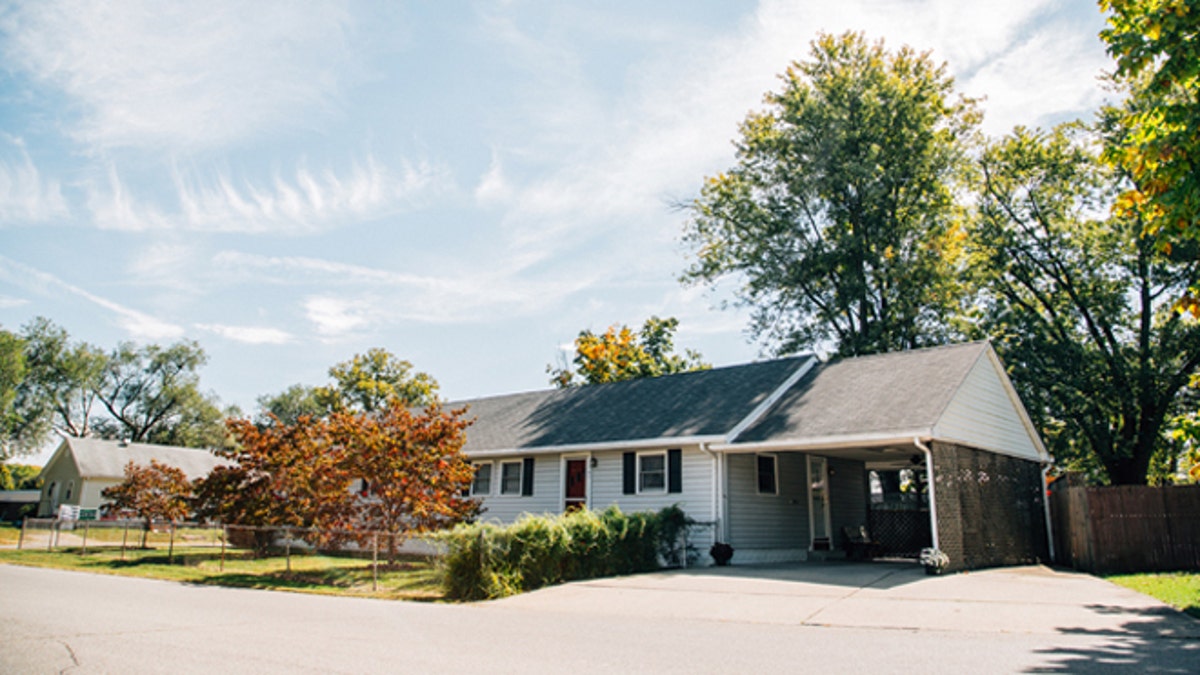
Shown here is the home of Ellen and David Keith in Charlestown, Ind. (Institute for Justice)
Indiana residents are fighting to save their homes as their local government weighs a sweeping plan to demolish them to make way for new development, in a case critics are calling a “poster child” for the abuse of so-called eminent domain powers.
Charlestown, Ind., Mayor Bob Hall announced his plans earlier this year to demolish more than 350 homes in the city’s Pleasant Ridge neighborhood. The mayor contends the neighborhood is “blighted,” and therefore the city is eligible for state money to buy out the homeowners and tear down their houses.
His office argues the houses, originally bought by the Army in 1940, were meant to be temporary.
But the “temporary” houses remain very much occupied. And many residents are not interested in selling them, at least not for what the government might offer. According to the Institute for Justice, a national group that is aiding residents in their case, the state fund Hall wants to tap offers residents just $6,000 for their houses.
“We’re not transients. We’re real people,” Ellen Keith, who has lived with her husband David in their Pleasant Ridge home for 36 years, told FoxNews.com. “These people are my real neighbors, and I love my neighbors. … My house is not for sale.”
Hall first submitted a 17,000-page application for money from Indiana’s Blight Elimination Program in June of this year. The state’s decision was supposed to come out in July.
But amid protests from residents, the mayor decided to put that decision on hold in early July, asking the state to defer the city’s application. Now residents will have to wait until November or December to find out if the city plans to go forward.
The mayor’s office maintains that the destruction of these homes will be best for the city.
“This area was declared blighted in 2002 in connection with a revitalization grant received then. The housing in this area was temporary housing bought by the army to house workers at the ammunition plant in 1940,” the mayor’s spokeswoman, Geneva Adams, said. “They were not meant to be permanent housing. The decline of these structures is evident as you drive through the area.”
Keith believes her neighborhood is being targeted because it is a largely low-income area.
“I’ve never had any trouble in this neighborhood, not one problem,” she said. “The mayor wants to say that we have a crime and drug problem. … I guess because we’re a poor neighborhood, they want to label it like that.”
Residents have turned to the Institute for Justice, a nonprofit public interest law firm dedicated to defending private property rights, for help.
The institute’s Melinda Haring says the city of Charlestown is abusing eminent domain law, which is what local governments typically cite in seizing homes, for everything from road projects to developments. She said with the economy emerging from recession, this kind of practice is on the upswing.
“Now the recession of 2008 is over. The economy is growing, and cities and developers are once again looking to eminent domain to obtain land from property owners who won’t sell. Charlestown is a poster child of the new wave of abuse,” she said.
In this case, Haring said, the city wants to “demolish a working-class neighborhood” with money from the state and a private developer.
“If owners refuse to sell their homes, the city has stated that it will take the homes through eminent domain,” she said. But Haring says the city would be breaking the law if they attempt to take homes through this process.
Though the Supreme Court in 2005 – in a highly controversial, 5-4 decision – ruled that economic development can be a factor in eminent domain seizures, Haring noted that Indiana shortly afterward passed eminent domain reforms.
She said “municipalities cannot use eminent domain for private residential and retail development.”
Further, she said, “eminent domain can be used if two conditions are satisfied: the taking is for a public use and just compensation is provided. New homes and retail are not a public use.”
Adams, with the mayor’s office, said the city is still in the early stages of plans for Pleasant Ridge.
“There has been no action by the city to exercise the use of eminent domain in this area. The city is assessing the desire of property owners to sell their properties and the viability of the redevelopment. The mayor has been meeting personally with individual property owners to discuss the proposed plan,” Adams said.




